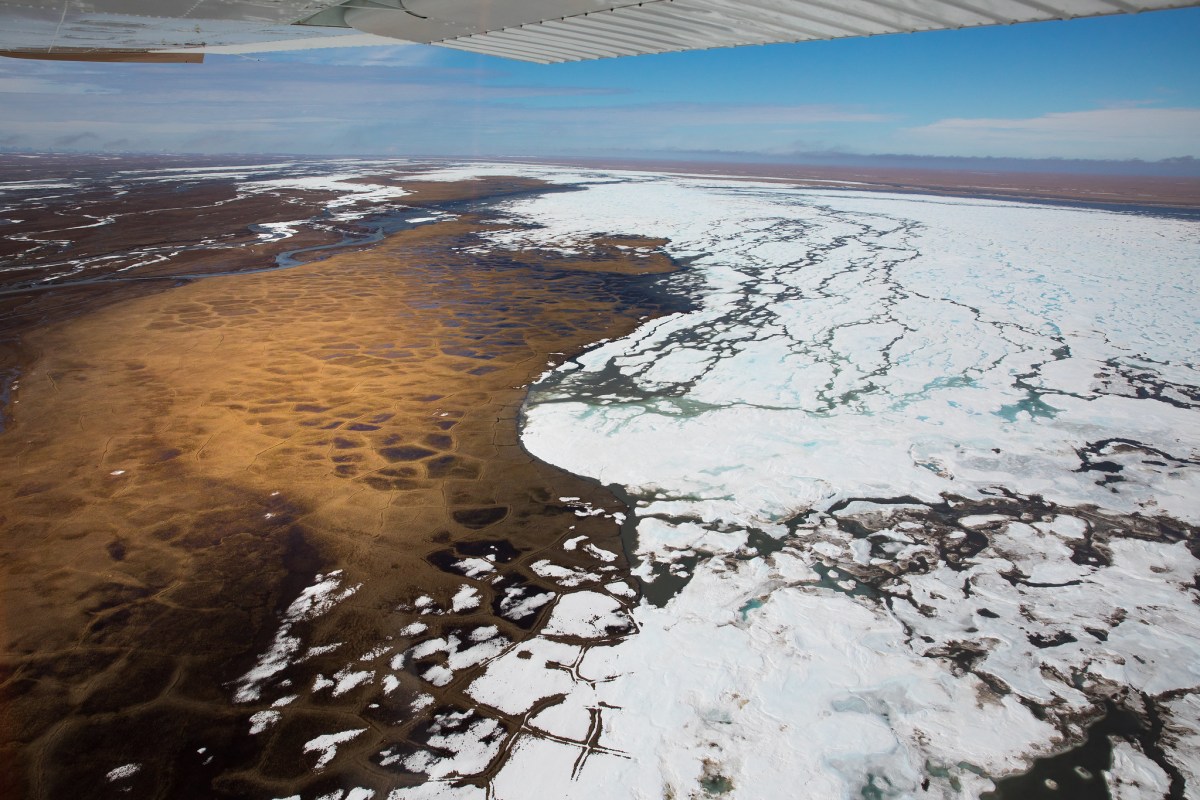The Department of the Interior announced Thursday that it was opening the entire 1.56 million acre Coastal Plain of the Arctic National Wildlife Refuge to oil and gas leases. The decision is the latest development in a decades-long battle over the development of pristine wilderness to access up to 11.8 billion barrels of recoverable oil beneath the tundra.
The DOI also said it would reinstate seven oil leases in the refuge acquired by the state of Alaska in 2021, but that had been canceled in 2023 by the Biden administration. Oil and gas lease sales will begin as soon as this winter. In the meantime, the Bureau of Land Management is calling for nominations on what tracts should be offered for sale. The BLM also released a new Record of Decision on Thursday to coincide with the announcement, effectively replacing the agency’s December plan .
The intention to open oil leases in ANWR was the DOI’s headliner in a “sweeping package” of changes to Alaska public lands, including completing right-of-way permits for the Ambler Road and moving forward with the King Cove–Cold Bay Road corridor through a land exchange. The release also noted land allotments for three Native Alaskans who served in Vietnam.
Native Alaskan groups are divided on these issues.
“Over 95 percent of the North Slope’s tax revenue is derived from taxation of resource development infrastructure, not output,” reads a statement on Thursday from the Voice of the Arctic Iñupiat, a coalition that supports drilling in ANWR. “These funds support modern community infrastructure and services … as well as world-class wildlife management and research departments supporting Indigenous subsistence traditions.”
Meanwhile, many Gwich’in Natives oppose drilling over concerns it would harm the Porcupine Caribou Herd, currently the largest caribou herd in Alaska.
“This decision directly contradicts years of Gwich’in engagement and advocacy that makes clear any drilling on this land would cause irrevocable harm to the Gwich’in and our way of life,” said Galen Gilbert, First Chief of Arctic Village Council in a press release Thursday by the Gwich’in Steering Committee, which opposes ANWR drilling. The group’s executive director, meanwhile, condemned “efforts by the Trump administration to exploit the calving grounds of the Porcupine Caribou herd for short-term gain.”
The King Cove-Cold Bay Road has also divided Native groups. The proposed road would cut through the Izembek National Wildlife Refuge via a land exchange of about 450 acres with the Native King Cove Corporation. Proponents of the road say it will help provide residents with better access to medical care, while others say it risks critical wildlife and waterfowl habitat.
“I worry every day about what’s going to happen to the brant and emperor geese if there’s a road in Izembek,” Edgar Tall Sr., chief of the Native Village of Hooper Bay, said in a statement to the Center for Biological Diversity, an anti-hunting nonprofit. “Our people hunt these birds together so we can learn from each other and teach our children how to hunt and take care of the land.”
“The Biden administration put the lives of birds over the lives of people,” Senator Dan Sullivan (R-AK) said at the DOI event Thursday. “That ends today.”
Plans to move forward with ANWR drilling, the Ambler Road, and the King Cove land swap, the DOI said in its release, “reduce regulatory barriers, support local communities, and strengthen Alaska’s role in national energy security and economic growth.” None of this comes a surprise. President Trump issued an executive order in January that included ANWR’s role in his administration’s plan to unleash Alaska’s “extraordinary resource potential.”
This is the latest in a series of moves to open Alaska to energy development on public land. Earlier this month, the Trump administration also greenlit the controversial Ambler Road, a 211-mile private industrial corridor that would access mining deposits south of the Brooks Range. Thursday’s announcement noted that the DOI had also conveyed nearly 23,600 acres near Ambler to the State of Alaska, “completing the state’s selections in the area and advancing local control over land use and resource development and supporting local decision-making and economic growth.”
Advancing the Ambler Road Project has disregarded the BLM’s latest environmental impact statement and decades of local public input on the project.

Read Next: Why the Roadless Rule Is Important for Hunters and Anglers
While Burgum noted that Ambler construction would begin as soon as spring, the right-of-way permits remain tied up in lawsuits from their issue during the first Trump administration. The Ambler Road would bisect the winter range of the Western Arctic Caribou Herd, among other conservation concerns.
Read the full article here




